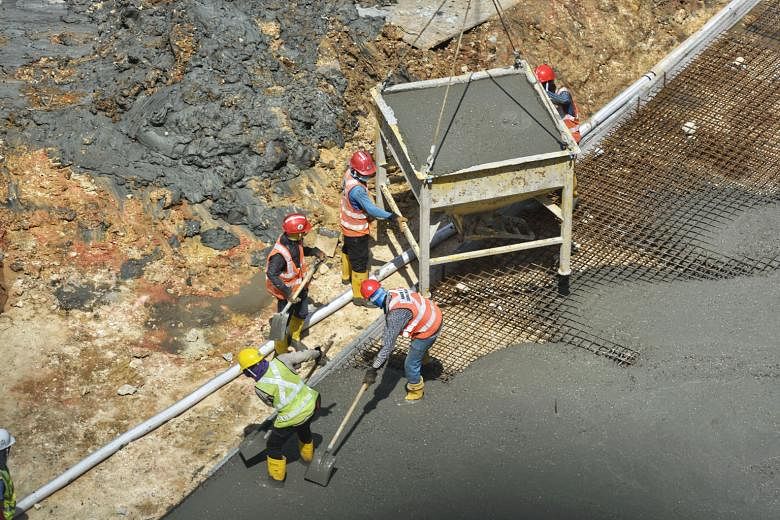The road ahead for the construction industry remains uncertain, for while Singapore may have quelled the Covid-19 outbreak in worker dormitories here and is gradually opening up, the countries that supply manpower and materials for the construction industry have not, some contractors told The Straits Times.
Malaysia's full movement control order that was implemented on June 1, for instance, affected the inflow of precast components used in the Housing Board's Build-To-Order (BTO) projects, said one.
Around 60 per cent to 70 per cent of BTO blocks are built using a prefabricated pre-finished volumetric construction method, which has entire units built in factories and assembled on-site, Lego-style.
The majority of the components are imported from Malaysia and supply has been greatly disrupted, said Mr Ganessaraj Soocelaraj, group chief executive of Soilbuild Construction.
"Locally, we've got a good system going, with vaccination and regular testing among the workers. But our construction sector still relies so heavily on imports, both for manpower and materials, and these external factors are out of our control," said Mr Ganessaraj.
"Nevertheless, there is some optimism, but the pace at which we are getting there is, understandably, not as quick as we hope," he added.
Straits Construction executive director Kenneth Loo said current precast components are "bespoke" for each project, which makes it hard for contractors to go to an alternative source, especially at short notice.
This challenge comes on top of the tightened border controls that have limited the inflow of foreign workers from India and Bangladesh since April.
A pilot programme to bring in workers from India to the construction, marine and process sectors here is under way, but the numbers are small and barely scratch the surface of what is needed, said Mr Loo. "There's a big difference between the number of workers being brought in and the number leaking out."
Mr Khoo Sze Boon, managing director for Singapore at real estate consultancy Turner & Townsend, said the immediate focus should be to resolve the manpower shortage to clear the backlog of projects.
But the digital transformation of the industry should be accelerated in tandem, he added, to increase productivity and reduce reliance on foreign labour.
Mr Ben Breen, managing director for the Asia-Pacific and head of global construction at Project Management Institute, said Singapore has had a leg-up in leveraging innovative building techniques but should also invest in its human capital by continuously training its core workforce, like project managers.
"Technical skills will always be instrumental, but they increasingly must be complemented by capabilities focused on working with people and leading teams," he said.


